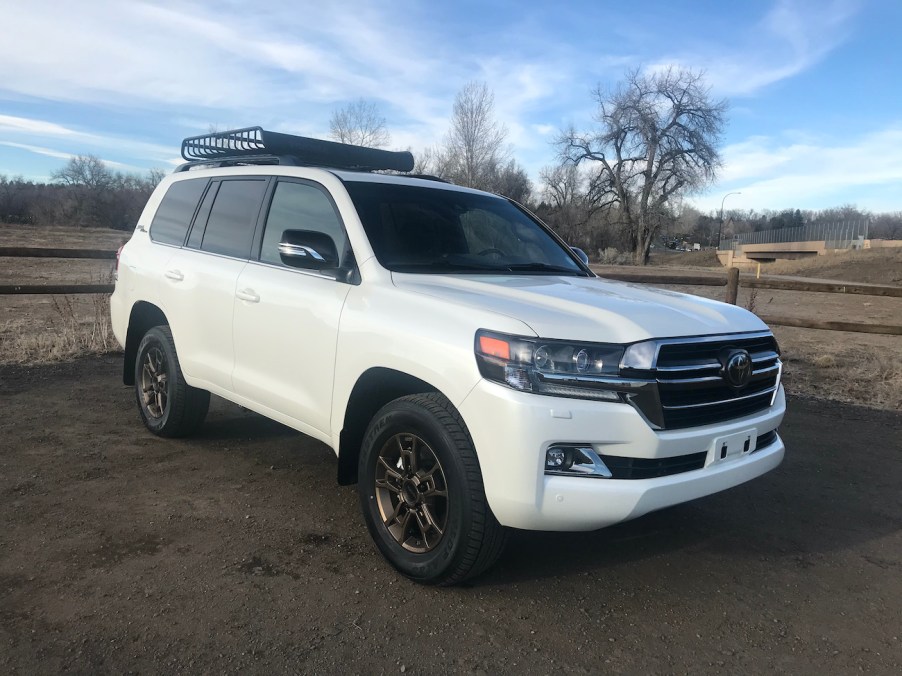
5 Tips For Selling Your Car Privately
Selling your vehicle privately can be a challenging task. It can be a lot to handle with online scammers, buyers who aren’t sure they want to buy, and other problems. However, you can do a few things to ensure you’re prepared. This way, the process is streamlined and becomes as easy as possible. Decrease the time it takes to finalize your private car sale with these five tips for selling.
Know what your car is worth

Determining what your vehicle is worth can be a task in and of itself. Whether or not someone will buy it is usually primarily based on the price. Many factors can affect the value of a vehicle. These include obvious things like age, mileage, and condition, and not-so-obvious things like the current market conditions, fuel prices/economy, and more.
For example, Cars.com indicates that 10-year-old used cars are up to an average price of $16,331 in July 2022 compared to $8,995 in July 2020. This means your aging car from 2012 could fetch a much higher price than it’s probably worth right now. Online resources like Kelley Blue Book or used car chains like CarMax are excellent for determining your car’s current value.
Post your car online

Selling your car online is easy with the number of tools available today. There are places to sell cars that aren’t exclusively for vehicles, like Craigslist, eBay, or Facebook Marketplace. Then there are sites specifically for selling your used car privately, like Cars.com or Autotrader, which provide tools to make it easy. Be sure to highlight your vehicle’s strong points, whether it be cleanliness, low mileage, or desirable features.
As a former dealership employee who photographed every piece of used car inventory, I can tell you photos are vital. The difference in online traffic between a vehicle without pictures and one with high-quality images is astronomical.
Additionally, take photos of all the right places and angles. Shoot every exterior angle to ensure potential buyers there’s no damage to hide (or be open about small things like scratches, which can show buyers you aren’t hiding worse). Although every button on the interior doesn’t need to be highlighted, the front dash as a whole should get some attention. Many buyers will want to know your vehicle’s equipment, which is often easily shown through interior photos.
Be prepared with paperwork

Selling your car privately becomes even more of a hassle after you’ve made a deal. Moreover, the things a dealer usually does for you now must be done manually—for example, the car’s title, a bill of sale, or other essential documents. Be sure to keep a receipt of the purchase and give a copy to the buyer so both parties feel secure. Cars.com says some states even require a bill of sale to transfer the title over to a new owner.
Lastly, documents involving the vehicle’s maintenance history, warranty details, and manuals can also help. These things can help show a buyer you’ve cared for the car well and often encourages a purchase. Websites like CarFax and Autocheck are excellent resources.
Above all, sell your car safely

There’s massive risk from both parties involved in a private sale. Whether it’s due to the uncertainty of the vehicle’s quality, a dangerous person meeting you, or any monetary scam. Trading and selling to a dealer are much safer, secure, and even more accessible since they’ll do most of the work for you. (You’ll also likely get less money since dealers need to make a profit) However, as long as you take precautions, selling privately can be a breeze.
First, set up a public meeting place for a test drive, and bring a friend if possible. If the potential buyer wants to drive the car alone, do exactly what a dealership would do. Take a photo of their driver’s license and maybe even their insurance card before they drive away. Furthermore, a person who refuses this offer isn’t worth selling to anymore.
Lastly, take payment securely once a price is agreed upon. Communicate how you’d like to receive compensation, whether it is cash, a cashier’s check, a personal check, or another method. Cash and cashier’s checks are the safest, and the title should not be transferred until the money is in your hands or bank account. Don’t transfer the title before a check clears. Additionally, don’t take payment through an app that can be canceled or altered.
Final actions after a private car sale
Finally, there are some things you’ll need to do to tie up loose ends. After selling your used car to a buyer, get your license plates off the vehicle. Usually, they’re only held on by a few screws, so anyone can easily remove them. Most states require the tags to stay with the seller, whether to transfer to a new vehicle or turn them into the DMV.
Also, remove the sold vehicle from your insurance policy ASAP. Don’t let another driver use your insurance before leaving with the car. Get it off the policy and leave it in the hands of the buyer to get their own. Lastly, an out-of-town buyer either needs to drive to get the vehicle themselves or pay for transport. Depending on distance and vehicle weight, a car carrier can deliver your vehicle anywhere in the country, but it will be pretty costly.
Tips for selling your car privately
In conclusion, selling your used car privately can be much more profitable than trading it to a dealer. However, there are a few challenges you’ll undoubtedly run into eventually. Follow these tips to be as prepared as possible throughout the selling process. Know your vehicle’s value, post it online, prepare your paperwork, sell safely, and perform final actions to streamline your private car sale.



